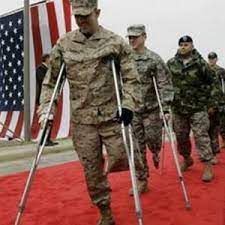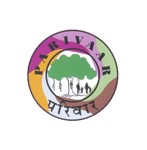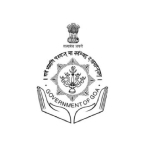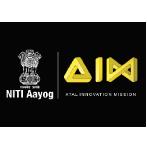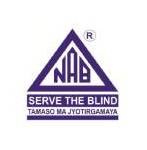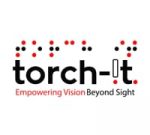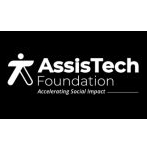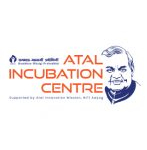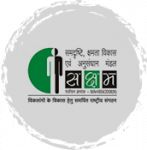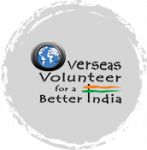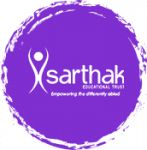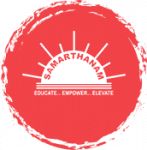The Unseen Battle: Disabilities Among American War Veterans
American war veterans, who have bravely served their country in times of conflict and danger, often bear the physical and emotional scars of their experiences. These individuals have sacrificed their well-being and sometimes even their lives to protect the values and freedoms cherished by their nation. Unfortunately, many veterans return home with disabilities that significantly impact their lives. This article aims to provide detailed information and statistics about the challenges faced by American war veterans with disabilities and the importance of providing them with the support they deserve.
The horrors of war can leave veterans with profound physical and psychological injuries. Combat-related injuries, such as limb loss, traumatic brain injuries (TBI), spinal cord injuries, and hearing or vision impairments, can lead to long-term disabilities. Since the terrorist attacks on September 11, 2001, over 53,000 service members have been wounded in action during Operation Enduring Freedom, Operation Iraqi Freedom, and Operation New Dawn (U.S. Department of Veterans Affairs). These injuries often require extensive medical care, rehabilitation, and ongoing support. Many veterans with disabilities suffer from post-traumatic stress disorder (PTSD), a mental health condition triggered by traumatic experiences. According to the National Institute of Mental Health, approximately 11-20% of veterans who served in Operations Iraqi Freedom and Enduring Freedom have experienced PTSD. This condition can significantly impact veterans’ daily lives, relationships, and overall well-being, requiring specialized mental health support.
Access to quality healthcare is crucial for veterans w ith disabilities. However, many veterans face significant challenges in accessing timely and adequate healthcare services. In 2019, a report from the Government Accountability Office found that veterans often face difficulties accessing VA healthcare, with wait times for appointments being a persistent issue. The report highlighted that around 22% of surveyed veterans reported waiting more than 30 days for a primary care appointment. Moreover, disparities in healthcare access and outcomes exist among veterans. According to a study published in the Journal of General Internal Medicine, veterans with disabilities have higher rates of unmet healthcare needs compared to their non-veteran counterparts. This can be attributed to various factors, including limited availability of specialized services, geographic barriers in accessing care, and inadequate provider knowledge and training regarding the specific needs of veterans with disabilities.
Reintegrating into civilian life can be challenging for veterans with disabilities, particularly in the employment sector. According to the U.S. Bureau of Labor Statistics, in 2020, the unemployment rate for veterans with a service-connected disability was 6.9%, compared to 3.9% for veterans without a disability. This disparity indicates the difficulties veterans with disabilities face in finding suitable employment opportunities. Challenges in employment for veterans with disabilities can be multifaceted. They may encounter physical limitations that require workplace accommodations, difficulties in transferring military skills to civilian job requirements, or employer biases and misconceptions about their capabilities. A study published in the Journal of Rehabilitation Research, Policy, and Education found that veterans with disabilities often face workplace discrimination and challenges related to workplace accommodations, further exacerbating their employment prospects.
War veterans with disabilities often face social stigma and discrimination, which can further impact their well-being. A survey conducted by the National Survey on Employment and Disability found that 61% of veterans with disabilities reported experiencing discrimination in their communities. This discrimination can range from overt acts, such as derogatory comments or exclusion from social activities, to more subtle biases that lead to limited opportunities and access to resources. The lack of awareness and understanding about disabilities among the general public contributes to the perpetuation of stigma. Misconceptions and stereotypes about disabilities can isolate and marginalize veterans, making it challenging for them to reintegrate into their communities. This social isolation can negatively impact mental health, leading to increased rates of depression, anxiety, and feelings of loneliness among veterans with disabilities.
Veterans with disabilities may struggle to access the necessary support systems and resources. The VA, although essential, can be overwhelmed by the high demand for services, resulting in delayed or inadequate care. A report from the Disabled American Veterans (DAV) organization highlighted gaps in mental health services, counseling, and community-based support programs for veterans with disabilities. The lack of available and accessible mental health services is a significant concern. According to the Veterans Health Administration, approximately 17 veterans die by suicide every day in the United States. Veterans with disabilities, particularly those grappling with mental health conditions, require specialized and timely mental health support to address their unique needs and prevent tragic outcomes.
Non-governmental organizations (NGOs) and advocacy groups play a crucial role in addressing the challenges faced by veterans with disabilities. These organizations work tirelessly to raise awareness, provide assistance, and advocate for improved healthcare, employment opportunities, and social inclusion. NGOs like VOSAP (Voice of Specially Abled People) contribute significantly to empowering veterans and addressing the challenges they face. NGOs often fill gaps in services and provide specialized support that may not be readily available through government agencies. They offer a range of services, including physical and occupational therapy, mental health counseling, assistive technology, job training, and support in navigating the complex systems that veterans with disabilities often encounter. Additionally, NGOs play a vital role in advocating for policy changes, promoting disability rights, and raising public awareness to create a more inclusive society for veterans with disabilities.
NGOs have made significant and wide-ranging contributions to supporting disabled American war veterans, leaving a profound impact on their lives. Disabled American Veterans (DAV) assisted over 1 million veterans in accessing healthcare benefits and services, with their National Service Officers providing support in over 238,000 cases in a year. The Wounded Warrior Project (WWP) has served over 200,000 warriors, providing programs such as mental health counseling, adaptive sports, and career counseling, empowering veterans to reintegrate into society successfully. Paralyzed Veterans of America (PVA) has played a crucial role in assisting disabled veterans in securing employment, with their vocational rehabilitation program supporting over 2,500 veterans in their job search and placement efforts. Homes for Our Troops has built and donated over 270 specially adapted homes, offering mortgage-free housing to veterans with severe injuries and disabilities. The Iraq and Afghanistan Veterans of America (IAVA) has been instrumental in advocating for numerous policies benefiting veterans, including the Post-9/11 GI Bill, which has provided educational benefits to over 2 million veterans. The National Veterans Legal Services Program (NVLSP) has provided legal representation to thousands of veterans, resulting in successful claims and securing over $1 billion in disability benefits. These statistics underscore the immense impact of NGOs in providing healthcare access, rehabilitation, employment opportunities, housing support, policy advocacy, and legal assistance, ultimately enhancing the lives of disabled American war veterans and honoring their service and sacrifices.
American war veterans with disabilities face significant challenges in accessing healthcare, finding employment, and overcoming social stigma. Society needs to recognize their sacrifices and provide them with the support they need and deserve. By improving access to healthcare, creating inclusive employment opportunities, and fostering a culture of acceptance, we can honor the service of these veterans and help them lead fulfilling lives. NGOs and advocacy groups such as VOSAP play a vital role in supporting veterans with disabilities and working towards a more inclusive society. Together, we can ensure that these brave individuals receive the care, respect, and opportunities they require to thrive and fully participate in their communities. They served us, now it is our turn to serve them.


